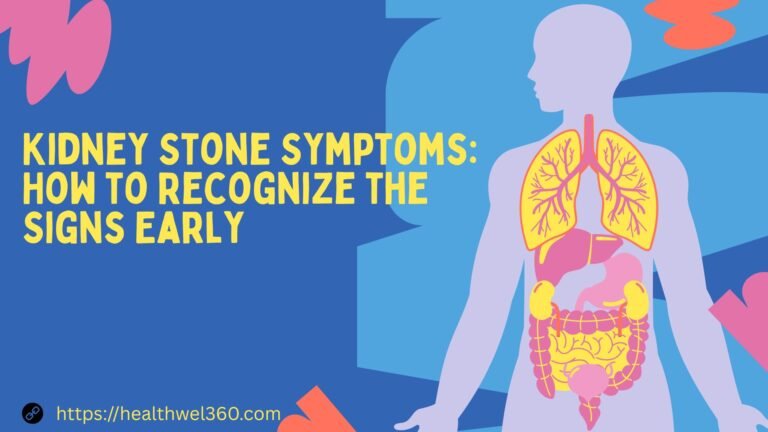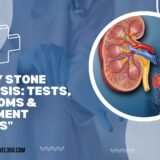Kidney Stone Symptoms: How to Recognize the Signs Early, Kidney stones are hard deposits of minerals and salts that occur within the kidneys. They can cause extreme pain and discomfort as they pass through your urinary tract. Recognizing the symptoms early can help you seek treatment before complications arise.
Common Symptoms of Kidney Stones
1. Severe Lower Abdominal, Side, or Back Pain
frequently referred to as one of the most excruciating aches in the world.
Pain can vary in severity and occur in waves.
Typically starts in the back or side below the ribs and radiates to the lower abdomen and groin.
2. Pain or Burning During Urination
Happens when the stone gets to the point where the bladder and ureter meet.
frequently confused with a urinary tract infection.
3. Frequent Urination or Urgency to Urinate
Feeling the need to urinate more often, even if little comes out.
brought on by discomfort from the urinary tract stone.
4. Blood in Urine (Hematuria)
Urine may appear pink, red, or brown.
Caused by a stone scratching the urinary tract lining.
5. Cloudy or Foul-Smelling Urine
Could indicate an infection alongside the kidney stone.
Often accompanied by fever or chills if infection is present.
6. Nausea and Vomiting
Due to shared nerve connections between kidneys and the digestive tract.
Severe pain can also trigger nausea.
7. Fever and Chills (Sign of Infection)
If a kidney stone causes a blockage leading to infection, fever may develop.
Requires immediate medical attention.
Seek emergency care if you experience:
Unbearable pain that does not subside with pain medications.
Blood in urine with severe pain.
Fever and chills might suggest an illness.
Inability to urinate, which could mean a complete blockage.
Final Thoughts
Kidney stones can be extremely painful, but early detection helps in managing them effectively. Staying hydrated, eating a balanced diet, and seeking medical advice when symptoms arise can prevent complications.
Would you like more details on treatment options or prevention tips? Let me know!
Disclaimer: This blog is intended to provide information only and should not be used as a substitute for professional medical advice.Always consult a healthcare provider for diagnosis and treatment.




